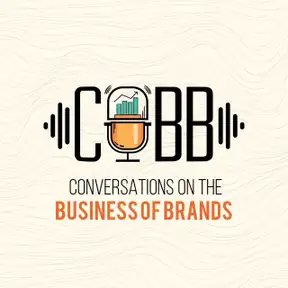143) When Research Misleads: A Marketer’s Dilemma
In this truth-bomb-laden episode of CoBB, Sudeep Chawla interviews Sharavana Raghavan to unravel the paradox of marketing research, if everyone is doing it, why do most innovations still fail?
Using examples from Dettol, Farmley, and their own deep-dive into snacking behaviour, the duo expose how research often confirms pre-existing biases instead of uncovering real insights. Sharavana makes a compelling case for qualitative immersions over click-and-run surveys, especially when the consumer’s stated intent and actual behaviour don’t align.
From contradictory preferences to cultural conditioning, the episode explores why consumers seem inconsistent — and why that’s actually a consistent pattern marketers must decode.
KEY THEMES EXPLORED
Research confirms biases more often than it uncovers truths
Sharavana argues that many brand teams use research as validation, not investigation. Poorly framed questions or surveys often end up reinforcing what marketers want to believe.
Surveys capture intent, not action
Online surveys tend to highlight what consumers claim, but miss the deeper “why” behind their behaviour - leading to skewed insights and contradictory conclusions.
Same data, opposite takeaways
Farmley and CoBB’s own snacking reports aligned on facts, but their interpretations were starkly different - exposing how intent, audience, and methodology shape insights.
Meet the LOTH, again
The Lady of the House (LOTH) is not just a demographic — she’s a decision-making system. She’s rational within her emotional world, balancing budget, convenience, guilt, and culture — all at once.
A framework of contradictions
From noodles to pasta to biscuits, what seems like hypocrisy is actually a consistent logic: conditioning, convenience, and customisability. Marketers need to learn her real operating system.
Familiarity breeds acceptance
Formats that feel homemade (or home-makeable) earn trust. The more foreign a format feels, the more scrutiny it faces — no matter how healthy it claims to be.
Top-of-mind ≠ Top-of-sale
Consumers ask for “Maggi” but settle for Zoopy. Familiarity and price trump brand loyalty when contextual costs like effort and emotion come into play.
KEY TAKEAWAYS
• Don’t confuse research with surveys. Immersive, ethnographic methods yield deeper insights.
• Consumers are not irrational — they’re operating with a logic shaped by culture, context, and compromise.
• Trust is rooted in familiarity, not just brand building.
• Market share can be won locally by mastering activation and retailer relationships — not just awareness.
• Stop expecting consumers to behave in straight lines. Real life is a loop of contradictions — and marketers must map it.
QUOTES
“Surveys capture intent. Immersions capture action.”
“The Lady of the House is not confused. We are. She’s complex.”
“Don’t chase health. Respect convenience and conditioning.”
“Top-of-mind doesn’t mean top-of-sale — especially when Zoopy is ₹10.”
Access the full report on snacking choices here.
If you are a food entrepreneur, FMCG marketer, or brand builder who wants to understand the real psychology behind snack choices in Indian homes, this is the episode for you.
As always, send your feedback and topic suggestions to mail@cobbcast.net!
Please tell us what topics you'd like to have discussed on the CoBB, by filling in this CONTENT SUGGESTION FORM
It only takes a few minutes, and it will help us provide you with the content most relevant to you.
CONNECT WITH OUR HOSTS
Sharavana Raghavan on Linkedin
FOLLOW US
CREDITS
- Album Art & Design by ting.in
- Voiceovers by Anjale Stephanos
- Music from Zapsplat.com

